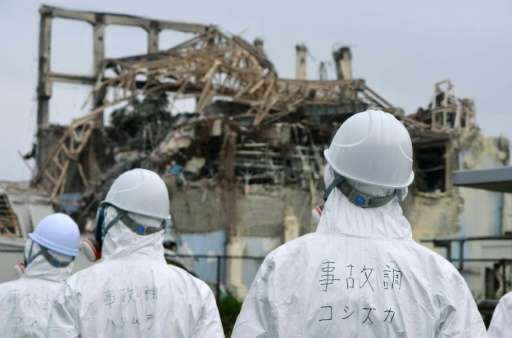Japan to restart first nuclear-reactor today since Fukushima
Kyushu Electric Power Co. said Monday it will restart the No. 1 reactor at its Sendai nuclear plant on Tuesday, marking the country’s first long-term return to nuclear power since the Fukushima crisis.
Officials have stressed that any switched-on reactor would operate under much tighter regulations than those that existed before Fukushima.
The 31-year-old reactor was expected to reach full operating capacity by “around 11.00 pm” yesterday, a Kyushu Electric Power spokeswoman said.
All of the reactors have remained offline since 2013, and Japan has reformed its safety rules to create a new regulatory body tasked with insuring that reactors that do come back on line comply with new safety restrictions gleaned from what has been learned of the disaster.
Prime Minister Shinzo Abe has said only reactors that were deemed to have cleared the “world’s most stringent regulation standards” would be allowed to restart.
Opponents caution that Japan records more earthquakes than any other country, and that the Sendai reactor is only 60 kilometers away from an active volcano. Uriu assured the company’s stakeholders that it would promote initiatives for improving the safety and security of nuclear power with voluntary and ongoing measures, and make an effort of positive disclosure and communication activities.
Opponents of the restarts and nuclear experts are also concerned that evacuation plans, in case of disasters, may not work well. Another reactor is scheduled to be restarted in October.
“We will continue to seriously and carefully cooperate with the country’s inspections, making safety our top priority, cautiously advancing the restart process,” the company said in the statement.
“The plans Kagoshima Prefecture has drawn up are unrealistic”, said Katsuhiro Inoue, a member of the Satsumasendai Municipal Assembly from the Japan Communist Party. To offset the shortfall in power output, the country ramped up imports of oil and gas and fired up more thermal power plants, slowing progress toward reducing its emissions of greenhouse gases.
A court in April, however, banned the Kansai reactor restart following safety concerns.
The atomic accident – one of the worst in modern history – displaced 160,000 people from the surrounding region who are still unable to return because of high radiation levels.
The event was greeted with protests by hundreds of people, including Naoto Kan, the prime minister at the time of the Fukushima disaster and now a high-profile anti-nuclear activist.
The Sendai reactor has been idled for more than four years and engineers say there is a risk of equipment failure causing early shutdowns.
Prior to the Fukushima disaster, about 30 percent of Japan’s energy was nuclear generated.
National polls in Japan show that most Japanese oppose nuclear restarts.








